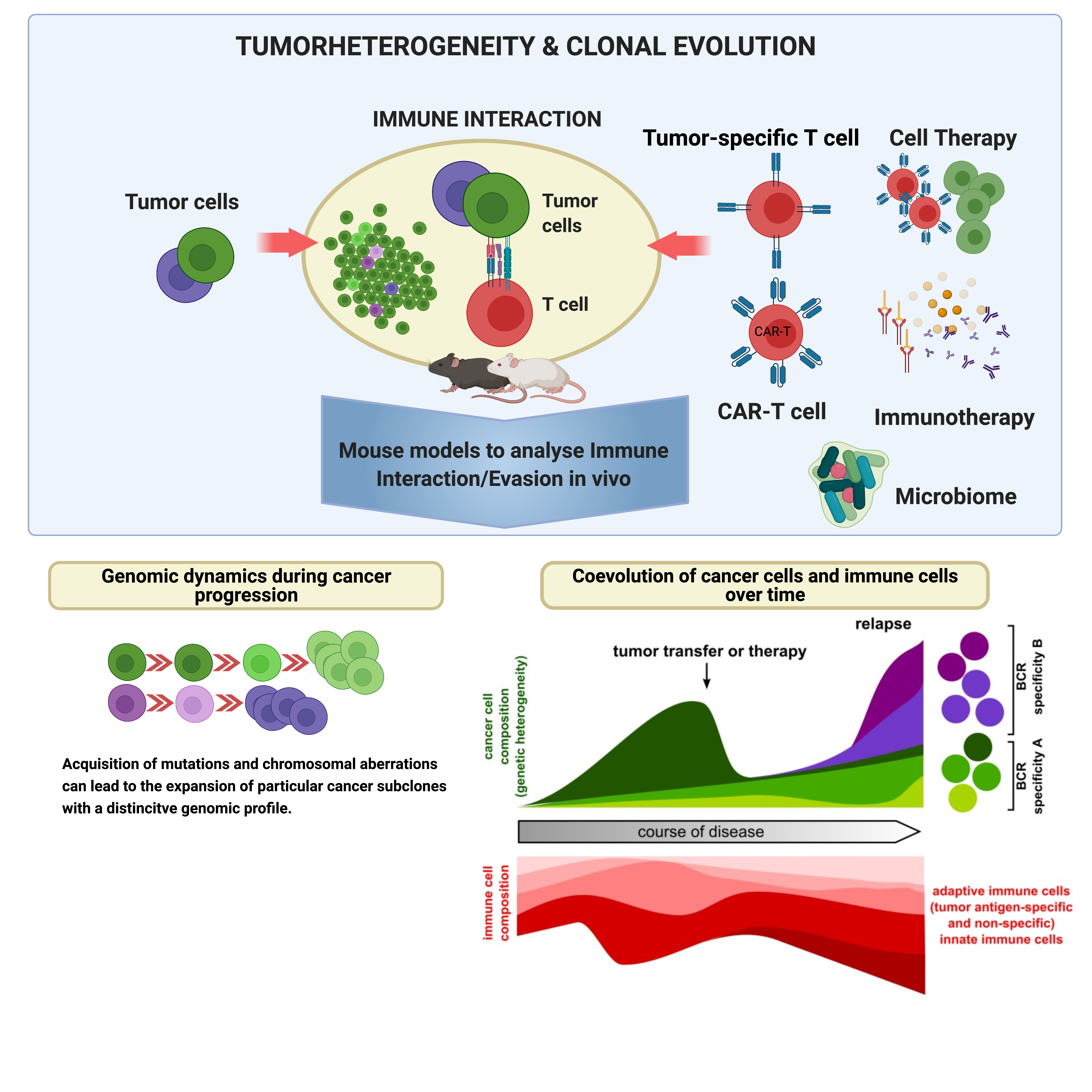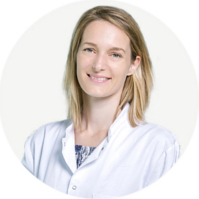
Working Group:
immuno-oncology
Supervisor: Priv.-Doz. Dr. Nadja Zaborsky
Cancer-immune interactions – to understand clonal evolution and anti-cancer immunity
Chronic lymphocytic leukemia (CLL), a very common B cell leukemia of the elderly is characterized by the accumulation of non-functional CD5 and CD19 double positive B cells in lymph nodes and peripheral blood. Recent high throughput sequencing approaches on multiple cancer entities revealed complex genetic landscapes in human cancers. A complex set of clonal and subclonal mutations was also described for CLL. Overall, the interindividual genetic heterogeneity of CLL appeared larger than that observed in other hematopoietic cancers.
As mouse models have revealed many significant insights into tumor biology that have proven relevant to human disease, one focus of our group is to unravel the mutation profile in mouse and humen CLL to better understand etiology, development and progression of human disease. The Tcl1 transgenic (TCL1) mouse is the most widely used model to study biology and treatment response of CLL. Therefore we use the Tcl1 mouse model to dissect CLL-immune interactions in order to draw light on clonal evolution and immune interactions during disease progression. In a second step we want to find possibilities to reinvigorate anti-cancer immunity in CLL by phenotypic and functional characterization of tumor antigen specific T cells.
Another focus of our group is the gut microbiome and how it can modulate and can be modulated by the host immunity and we want to understand how the microbiome can influence the response and toxicity of immune therapies. In a collaboration project, we apply mathematical modeling to associate the microbiome and the immune cell composition with clinical parameters and therapy response.

Our laboratory mice are maintained at the central laboratory animal facility (ZTH) of the PLUS.
For more information please visit the hompage of the ZTH: https://www.plus.ac.at/zth

“Investigating cancer-immune interactions are of utmost importance not only to understand cancer progression and immune evasion but also to improve current immune checkpoint therapy approaches, which – although considered as breakthrough in cancer therapy – fail to be effective in CLL and some other cancer entities.”
Team
Priv.-Doz. Dr. Nadja Zaborsky
(Leader / Supervisor)
Dr. Thomas Parigger
(Post-Doc)
Aryunni Abu Bakar, MSc
(PhD Student)
Stephan Drothler, MSc
(PhD Student)
Christian Scherhäufl, MSc
(PhD Student)
Jan Höpner, MSc
(PhD Student)
Do you have a request or any questions?
Feel free to contact us – we will get back back to you as soon as possible.